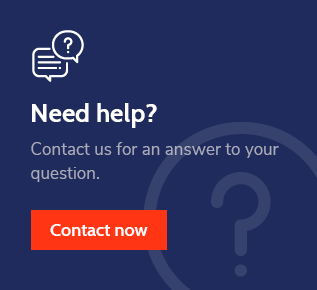Education and training are important components in creating successful, productive communities. Kansas provides support to life-long learners through training programs, resources, and educational opportunities for students of all ages.

Oversight and Regulation
The responsibility for ensuring the fitness of Kansas educational standards, availability of resources, and funding lie primarily with a handful of entities:
- Kansas State Department of Education (K-12): KSDE administers the state’s governance of education, standards and assessments, special education services, child nutrition and wellness, title programs and services, career and technical education, and financial aid.
- Kansas Board of Regents: the nine-member Kansas Board of Regents is the governing board of the state’s six universities and the statewide coordinating Board for the state’s 32 public higher education institutions (six state universities, one municipal university, nineteen community colleges, and six technical colleges). In addition, the Board administers the state’s student financial aid, adult education, high school equivalency, and career and technical education programs. Private proprietary schools and out-of-state institutions are authorized by the KBOR to operate in Kansas.
- Kansas State Board of Education: The mission of the State Board of Education is to prepare Kansas students for lifelong success through rigorous, quality academic instruction, career training and character development according to each student’s gifts and talents. The “Kansans CAN Vision” is to lead the world in the success of each student.
- Kansas Legislature: State legislators are responsible for determining the statewide education budget and base aid per pupil.
- Kansas State Treasurer: Administers the LearningQuest 529 program
K-12 Education

According to the KSDE’s Data Central portal, over 500 thousand children are enrolled in K-12 education for the 2020-2021 school year. While the vast majority of students attend one of the 1,311 public schools throughout the state, Kansas law recognizes the following types of schools:
- Public Schools
- Charter Schools
- Virtual Schools
- Home Schools
- Non-public Schools
Public schools in Kansas are open to all Kansas students and are funded by state tax dollars. Both state and federal aid dollars are distributed to Kansas Unified School Districts via the KSDE’s School Finance office. All public schools in Kansas are required to participate in the state’s accreditation process, which is overseen by the Kansas State Board of Education. Kansas public schools offer the following benefits:
- Audited and approved annually by KSDE
- Governed by a local school district
- Instruction provided by Kansas licensed and certified teachers
- Curriculum that meets or exceeds state academic standards
- Serves students in grades K-12 and adults
- Credits transfer to other public school districts
- Awards an accredited high school diploma
To enroll your child in public school, you should contact the administrative office of the Unified School District in which you reside.
Like public schools, charter schools and virtual schools are operated free-of-charge and are open to all Kansas students. Additionally, all charter schools and virtual schools are subject to the same accreditation requirements of public schools and must maintain accreditation to maintain their charter.
Non-public, or “private” schools as they are commonly called, do not have to participate in the the state’s accreditation process, although some do. Accredited private schools meet many, if not all, of the same standards of public schools, however private schools do not receive tax dollars. Instead, private schools typically fund their operations through tuition, endowments, and donations. Private schools also have greater control over their admissions process and may not admit all students who apply.
Those private schools that do not participate in the accreditation process are referred to as “Non-Accredited Privates Schools (NAPS).” All homeschool programs in Kansas are classified as NAPS. While NAPS do not participate in the state’s accreditation process, they are still required to register with the state.
Regardless of the type of education you choose for your child, parents or guardians of all school-age children are required to ensure their child receives an education. Whether your child is enrolled in public or private school, virtual learning environment or in-person, accredited or non-accredited institution, you are required to comply with the state’s compulsory school attendance laws.
K-12 Teaching
Instruction at accredited K-12 schools in Kansas is provided by licensed personnel. Teachers in Kansas are required to:
- Hold the proper degree from an accredited university
- Complete a content knowledge assessment in their subject(s) of specialization, as well as a teaching skills test
- Submit the proper application form to the KSDE
- Pass a background check, including fingerprint identification
- Remit payment for any applicable fees
Once licensed, teachers must maintain their licensure and accreditation by renewing their license with the KSDE. Both teachers and licensure candidates can use the Educator License Lookup to check the status of their license.
Substitute teachers are subject to different requirements than fully credentialed professionals. In order to qualify as a substitute teacher, one must:
- Hold a degree and have completed a teacher preparation program
- Submit the “Substitute License” application form to the KSDE
- Pass a background check, including fingerprint identification
- Remit payment for any applicable fees
If you do not hold a degree, but have earned at least 60 semester credit hours from an accredited college or university, you may apply online to be an Emergency Substitute teacher.
Higher Education
Higher education, including colleges, universities, technical institutions, and GED programs are governed by the Kansas Boards of Regents. In addition, the Board administers the state’s student financial aid, adult education, high school equivalency, and career and technical education programs. Private proprietary schools and out-of-state institutions are authorized by the Kansas Board of Regents to operate in Kansas, but are not subject to their governance.
There are currently six public universities and 26 public community and technical colleges in Kansas.
Additionally, there are 26 private universities and colleges and two federal institutions operating within the state. The Board authorizes the operation of private/out-of-state institutions, but they otherwise do not fall under the Board’s governance.
State universities in Kansas follow Qualified Admissions (QA) criteria when admitting undergraduate students. The purpose of QA is to enhance success at the university level by ensuring students are prepared for the rigors of a university education. The KBOR recently changed the QA standards for 2021 high school graduates.
Resources and Tools
Parents and guardians of children in special education programs are often required to quickly build their understanding of the services and supports that are available to their student learners. This can include:
Additional resources for Kansas learners include:
The Kansas Adult Education office is part of the Kansas Board of Regents. These programs serve Kansas adults age 16 and over who are in need of basic skills for the workforce, community participation and family life.
Kansas adult education programs also prepare adults for achieving industry recognized credentials and college certificates and degrees through providing access to relevant resources and statewide adult education centers. Many people also utilize adult education programs to obtain their GED® or to request their GED® transcript.
The primary goal of the KSDE’s Special Education Services team is to provide leadership and support for exceptional learners receiving special education services throughout Kansas schools and communities. Parents and guardians can find commonly used documents and forms such as the Kansas Special Education Process Handbook, dispute resolution forms, and information on gifted services.
The Kansas Department of Education’s Child Nutrition & Wellness office provides supervisory oversight for numerous programs with the goal of enhancing their ability to provide quality child nutrition and wellness programs for all Kansas children. These programs include the Child and Adult Care Food Program, the Farm to School Program, and the Summer Food Service Program.
Connect With Us
534 S. Kansas Ave., Ste 925
Topeka, KS 66603
© Kansas.gov - Portal Policies


